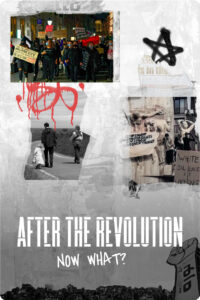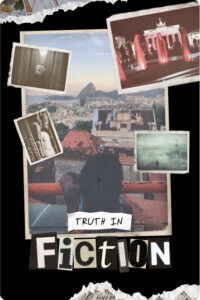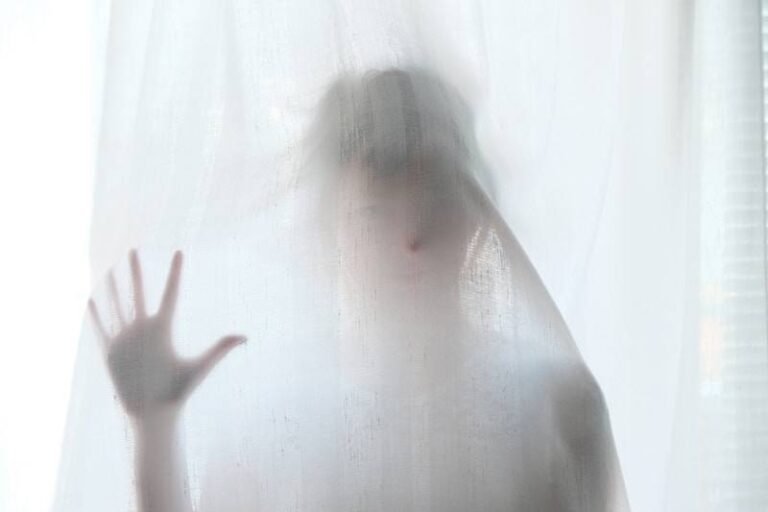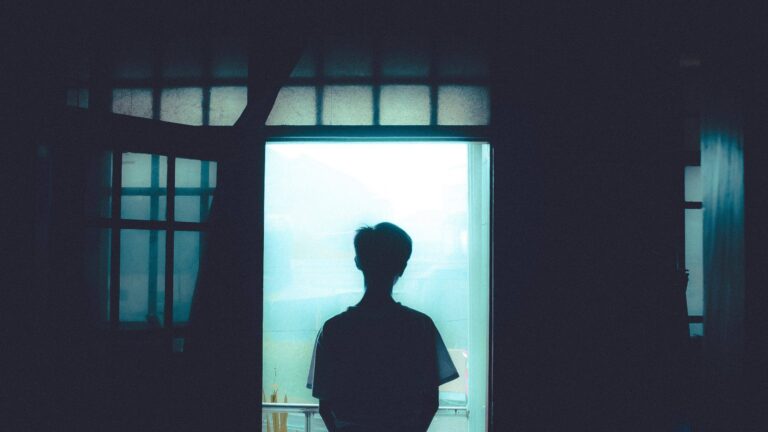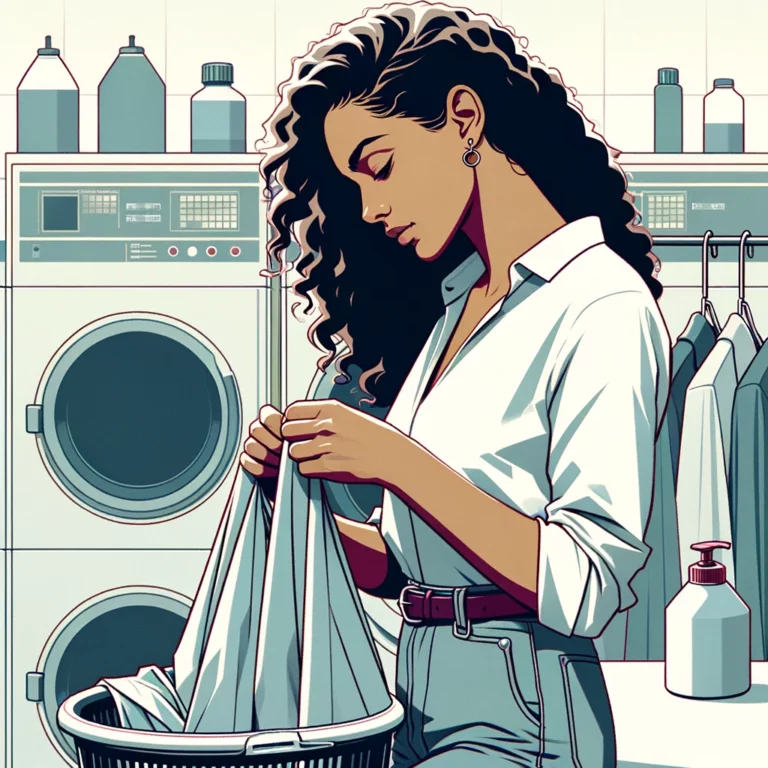Vera can’t help it, no matter how many times she’s been told that this is behaviour to be avoided, which goes against the good of society; and against her own, too. Her niece, Lucia, only a tad younger and who now lives in her house, follows the same logic inspired by her aunt’s voice: since the news of compulsory confinement, a means of controlling epidemics dating back to the Middle Ages and a measure decided by the government — and which could become more stringent in the days ahead — they spend their afternoons at the supermarket. To survive the months of isolation ahead, Vera and her niece fill their shopping trolley to the brim, under the reproving gaze of poorer onlookers. The cupboards are full, and since the apartment is small, they have to slalom between the stored food to get around. Paradoxically, they have never been as overwhelmed with food as they are in this pandemic period. Cans of food seem to stare at them, reminding them constantly of the fear of running out. Caution? Personal madness? Family madness? Insanity… how much insanity?
Laura lives in another apartment in the same huge beehive-shaped building. An apartment very close to Vera’s. It’s possible that when free movement was still possible, their paths may have crossed as furtively as their glances. Maybe they even exchanged smiles in a good neighbourly fashion. Or simply nothing. No acknowledgement. Just the anonymity of the big city, the usual confinement.
Both, however, share the same feeling, the same sensations that bring together lives that seem so different: Laura, like Vera, feels anguish; in her heart, like pressure. Which once led a great philosopher to say that we are all the same when faced with a toothache.Her nine-year-old son is with his father in another province of Argentina. Separated by less then 300 kilometers. Since they divorced, Laura has always had a good relationship with Marcelo, Tomás’s father. They have agreed on the big principles and small rules of education they want to give their child, without any dispute all these years. But when she heard the news of the confinement — at almost the same time as her neighbour Vera — Laura physically felt the separation from her son. Brutal. Absolute. A separation that left a mark of eternity, of suspended time, of fracture.
Laura rushed to call her friends and try to obtain a certificate that would confirm the exceptional nature of their situation as “separated parents” and allow her to go and pick up Tomás in her car. Meanwhile, Tomás was playing with toy cars with his father, who was happy at the idea that his son’s stay would last longer, that he could help him with the online homework sent by the school. In a few short hours, an unexpected event destroyed Laura’s concept of diachrony, or the “normal course of events”. She was accustomed to thinking long and hard about potential solutions. This would no longer be so. Her actions would no longer be guided by reflection alone. A small voice urged her to immediately reduce the distance between herself and her son. Or else later could come to mean never, the voice whispered to her. One of the great guiding constellations of her childhood took hold of Laura: the impossibility of waiting.
Vera, from the window of her small refuge jam-packed with provisions, sees Laura running towards her car. She sees her put a small bag in the trunk and slam it shut. Sees how she rushes to get behind the wheel, how she slams the door even more sharply, and how the car screeches off and runs a light as it changes from orange to red. She notices tiny actions that she had never paid attention to — being a peeping Tom had never interested her. And finally, when Laura has disappeared, Vera thinks of her with the same disapproval she receives from others when over-filling her shopping cart at the supermarket. “How come she’s leaving like that? Why doesn’t this woman stay inside? Such irresponsible behavior! I’m sure there’s nothing so important that justifies it.”
The Covid-19 pandemic, by its dazzling character – unseen like any virus, and powerful because of this invisibility – gives rise to all sorts of reasoning and responses. Some play on emotion and exaltation, others boast Cartesian rationality. Experts in molecular biology and the social sciences are making new mathematical models to flatten the curve. “Science can’t be satisfied with preconceived ideas; you must look for reliable information,” trumpets the media. But neither science nor the media, Vera thinks, could anticipate what would happen: “And I’m just here, like this.”
As for Laura, now on the road, she thinks back to predictions made by her cousin, a crazy astrologer, about the disasters that would happen in 2020: “I’ve got to call her and tell her she was right.”
Young people and adults in the prime of life, most of whom are immune, do not want to put the elderly at risk, it is repeatedly said. To avoid this risk, they sacrifice their time, their work, their finances and the scholastic progress of their young children or teenagers. No one wants to be Œdipus and kill their father — no matter how old he is. Anyone, by the slightest mistake, could do it. The metaphors of love and hate are changing and being reinterpreted: from now on, we take care of the elderly by staying away from them. Vera feels fortunate that she was able to farewell her parents in a more serene setting. Laura, still at the wheel, sees the messages scrolling on her phone. Her brothers are trying to reach her: “We have to take care of Dad.”
*
Vera was never very farsighted. She lived from day to day and acted responsibly, but never did these responsibilities become a prison of obligation or an excuse to justify her existence. She always enjoyed the outdoors; she liked to get lost in long walks in nature, to get on trains and planes that took her to countries that were so different from each other; she was light-spirited. For years she didn’t care if she slept in a different place every night. She loved what is called adventure.The future didn’t interest her so much, she was fine in the moment, making plans bored her, and she listened with a touch of sadness to people who were too preoccupied with things. Now she’s different. A stranger even to herself. Unrecognizable. She’s fearful, lonely, stockpiling things. Although Covid-19’s RNA had not reached Vera’s body, and perhaps would never reach her, or if it did, maybe she wouldn’t develop any symptoms — instead, falling into the category of those who could devastate others but not themselves, pure vector of propagation — or maybe those symptoms would manifest themselves, cruel. But in any case, the virus has damaged her imagination, her flesh, her inner truth.
Vera and Laura respond to the threat by appealing to what is most intimate, to their personal ghost; it is there, it has always been there, invisible, this ghost, lodged deep within everyone, ready to appear at a moment when an extreme situation in life would require it. Little does it matter whether its action is relevant or not.
Ghost and coronavirus: they have clashed, they have collided, they have taken sides.
*
Vera has never suffered from a hunger that would justify her stockpiling food; neither have her parents; her grandparents and great-grandparents, yes, on another continent and in other times; during a war when bombs rained down destroying buildings, shredding bodies. A voice heard in her childhood resurfaces, Vera doesn’t hear it, doesn’t even remember it, but there she can feel the effects: “Your great-grandmother used to chew the leather of her shoes. Now that’s what you call hunger.”
Laura, on the other hand, had never been fearless, let alone heroic. She thought long and hard before taking action, she wanted guarantees, to have a back-up plan. She always followed the rules, and acting alone scared her. She had separated from Marcelo because she couldn’t stand his “worldly desires” anymore. The present situation, unpredictable, illustrating the transitory state and impermanence of things, paradoxically brings to light in a state of suspended time, the eternity dwelling within Laura. While nature flourishes again under the effect of confinement, Laura sees only the ghost of a separation, of farewells and of the definitive breaking of bonds. A ghost that took hold of her from childhood and that came not from her own experiences but from those who had preceded her.
Laura’s great-grandparents had immigrated from Italy to South America; it was the time of a poor Europe and of a distant and promising region – Argentina – with its cattle and food in abundance. At that time, for these four migrants, saying goodbye to their loved ones was not just a prolonged separation, but a painful farewell, a suffering farewell. Eternal. This family mythology was present in Laura, and with the pandemic, its effects manifested themselves in the same way, as if traced. No oceans or slow ships, just a few miles and a virus that seemed to separate her forever from her son. The Internet and all the prowess of our civilization were no help in shortening that distance.
Her ghost, rekindled by the plague, was ready for all transgressions, to take unnecessary risks… for a child who could quietly spend a few more days at his father’s house until the waters of reality became clearer. Suddenly feeling heroic, she needed to do what the others had been unable to do: leave, rediscover, recover, return. (Laura hadn’t beaten the Coronavirus, she placed herself in danger, she rushed, she worried her son, she argued with her ex-husband. But she put an end to a family trauma. In vain?)
While the world, taken by surprise, wonders which protective mask to don, and how to divert the industrial arsenal to produce respirators at full speed, Vera sees only the ghost of hunger. A ghost that seized her as a child, infiltrating her with familiar words. And there it remained, silent. She didn’t know this intruder inside her who turned her into a person who fills her shopping cart to the brim. Since the ghost revealed itself to each one, Laura looks like the former Vera, the Fearless one, and Vera like the old Laura, the Obedient one.
When a crisis breaks, it means for most beings a regression to the oldest and most forgotten thoughts their memory banks. Like a man in his dotage who, faced with a painful and unexpected breakup, searches for the memory of his first girlfriend in an old diary — even though she, for her part, had long destroyed it. What is most unknown and uncertain calls within us the oldest, the founding myth. A strange collision between the most improbable future and our most ancestral past. Like some cosmic turnaround.
The ghost tells us an old and fragmented story, a sequence of information from old departed souls, but which remains solely to reproduce itself in new souls. Ghosts need a body to welcome them in order not to disappear. Yes, the ghost is very similar to this virus. Is it alive or isn’t it? Both, invisible. Both manifested their existence via mouths that spoke to us. Mouths that unknowingly transmitted it to us. Mouths, in general, full of good intentions. “Do you remember well what he told you, who told you, how he told you, where the contagion came from? Do you remember, Vera? Do you remember Laura? Do you remember Laura? And you, do you remember?” Unlike Covid-19, an RNA virus that doesn’t stay in the body forever after it wreaks havoc, the voice heard in childhood, the ghost, sounds like a DNA virus that once it reaches an organism, remains there in a state of latency. Its ghostly symptoms do not reveal themselves after a few days. The incubation period is very long. It doesn’t just infect a random few, it infects everyone.
*
Quarantines. Intermittent quarantines, successive quarantines, partial quarantines. Work, time, physical activity and public space open and close like an accordion. The rather contradictory prophecies of the superstars of sociology and philosophy circulate on social networks. Throughout the crisis, mutual friends will pass them on to Vera and Laura. They won’t take a particular position, nor show any particular interest. The manager of the building where they live, an ordinary woman who has become the lifeline of many, thinks very differently from these superstars. Vera, Laura and other neighbors will listen to her with attention and respect for months, keeping a safe distance of two meters. The woman says that we have to wait, we still don’t know if capitalism will collapse and Humanism will advance, or if it will be the time of the Right and totalitarianism. Nor does she believe that children are condemned to grow up interacting only with screens. Let’s not be sensationalist, she will tell everyone who enters or leaves the building, the symphony of the New World has not yet been written. It’s just a change of rhythm. You must learn to dance differently. Learn the off-beat.
Vera and Laura listen to music before falling asleep, their bodies moving to the rhythm as they always have.
*
Confinement is frightening, carrying a question mark; to limit its effects one coughs compulsively in the media (Vera and Laura generally feel like coughing, it’s the return of the lady with the camellias: in the absence of the virus, the fashionable protective gesture has contaminated them; and the body has begun to speak to them). Fears, jokes, advice, philosophies of life are expressed everywhere. Friends, colleagues, family members and former acquaintances are invited to call. Let no one feel alone these days! Depression must be fought. Even the loneliest and most forgotten will be accompanied. Communication is uninterrupted, pervasive. Not a second’s respite. It occupies the smallest particle of air. Until asphyxiation. Because, as much as the virus, if not more, we must absolutely avoid one question, the question: “What am I?”
Epidemiology invades the social body. Like a pandemic. It’s the science par excellence to which everyone must bow. Without it, no other science would exist. Vera spends hours listening to infectious disease experts as she washes the collected products for the third time; Laura listens to the famous media epidemiologist as she travels between provinces showing her certificate. What they hear does not shock them. Vera and Laura remain in the clutches of an ancient, bygone time. On the surface, they seem to be conforming to the new conventions. But only on the surface.
When Laura finally returns with her rescued son, she bumps into Vera. They might have recognized each other. Yet they’re still strangers to each other. Wearing masks, they don’t want to show the new forbidden zone, obscene and dreaded : their faces.
Drift, ghost…

